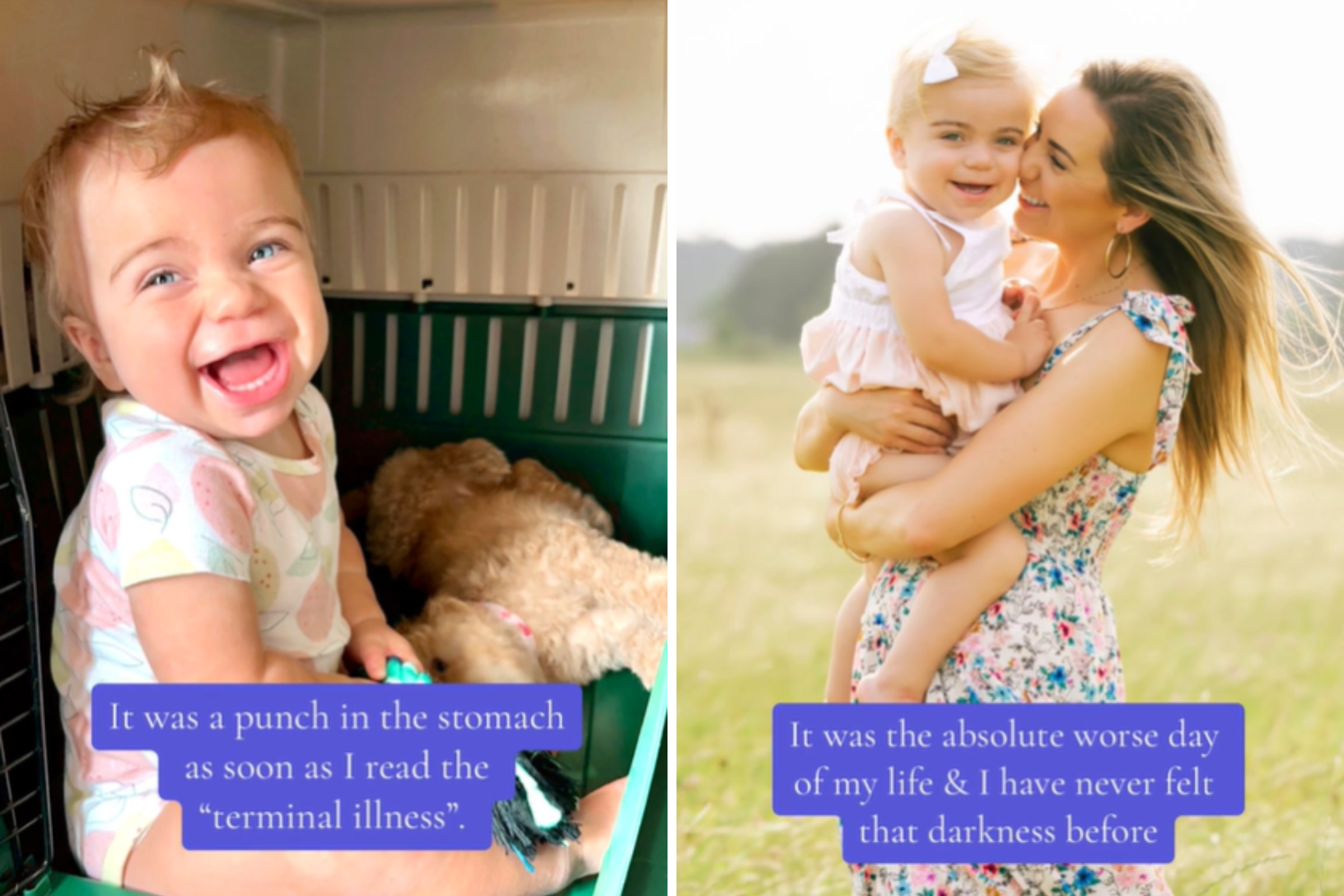A mom is raising awareness and funding following her daughter’s diagnosis of a rare terminal illness.
Morgan Rachal, 29, noticed her baby, Lydia, was suffering from reoccurring ear infections, the inability to sleep at night and gastrointestinal issues.
“Lydia was the perfect baby; she reached all her milestones and her symptoms are common things that babies have in general,” the mom from Louisiana told Newsweek.
@hopeforlydia
Despite this, Rachal’s mom (Lydia’s grandma) decided to do some research and encountered two other children—Hayden and Olivia—on social media who had been diagnosed with Sanfilippo syndrome.
Sanfilippo syndrome, also known as mucopolysaccharidosis type III (MPS III), is a genetic disorder characterized by the body’s inability to break down certain sugars, leading to severe neurological damage.
Children with this condition typically appear healthy at birth, but gradually lose their abilities over time, shortening their lifespan.
“There are four subtypes of Sanfilippo syndrome (MPS III A through D), but MPS IIIA is the most common type with an incidence of about 1 per 100,000 births,” Dr. Alexis Monique Javier of Children’s Memorial Hermann Pediatrics informed Newsweek.
Comparing the images of Hayden and Olivia to Lydia, Rachal told Newsweek she thought they looked identical.
“I started doing my own research and then I saw the symptoms were frequent ear infections, GI [gastrointestinal] issues, and sleep disturbances, and it just hit me,” Rachal said.
Believing that there was a good chance Lydia could have the condition, she approached her pediatrician with the evidence, prompting further medical investigation.
Unable to give an official diagnosis, Rachal’s pediatrician encouraged her to order a testing kit to determine Lydia’s condition and a week later, her urine came back with positive containing heparan sulfate—a typical marker for mucopolysaccharidoses.
“Sanfilippo syndrome is diagnosed by an initial common urine test for elevated GAGs [glycosaminoglycans] and then confirmatory genetic testing via enzyme analysis to look for a specific enzyme deficiency and/or mutation analysis that tests for high frequency of these mutations in this disorder,” Javier said.
A genetics doctor reiterated how rare this syndrome is and Rachal told Newsweek they were “heartbroken” when Lydia’s diagnosis was confirmed.
“It’s a waiting game now because there are no treatments available or cure for it yet; it’s only clinical trials,” she said.
Through her videos, Rachal is advocating for Lydia and aims to educate other moms if it ends up their child has it so they can get into treatments and early interventions before the brain damage begins.
These trials represent a glimmer of hope, offering potential treatments that could slow the progression of the disease or alleviate some of its symptoms.
“If Lydia could get into a clinical trial before the brain damage begins, it either could cure it or prolong the progression of the disease.”
The cost, however, is astronomical, necessitating a public fundraising campaign with a target of $1 million.
“When it comes to seeking a diagnosis on TikTok, I believe there is benefit to spreading evidence-based information and awareness especially of very rare conditions and diseases,” Javier told Newsweek.
He urges people to be cautious of any information on the internet and speak to your health-care professional about any concerns.
In Rachal’s case, he said seeing the TikTok videos may have paid off for the family. “From the video, it seems like they gained invaluable knowledge, awareness, and some answers,” Javier said.
Rachal’s campaign has garnered significant attention thanks to the power of social media.
One clip in particular, which has been viewed over 4 million times, has accumulated widespread support from around the world, with many TikTok users asking how they can help.
Rachal’s instructions are clear on TikTok: “Share, repost, donate if you can and most of all, prayers. The donations go to the foundation who do the research and fund for clinical trials. She needs a clinical trial—it’s her only shot at life.”
Another user also commented on why TikTok is a valuable tool for some families seeking answers to rare illnesses: “I’ve seen several kids be diagnosed by others’ videos. Praying for a cure and that sweet Lydia will get into a clinical trial.”
“Lydia is our little sunshine; she just brings so much happiness to us and you look at her and see all the potential that she could have in life,” Rachal told Newsweek.
Rachal continues to campaign for clinical trial access and her unwavering dedication serves as a call to action for all who encounter her story.
“We know there are treatments out there, we just have to get them,” she concluded.
Is there a health problem that’s worrying you? Let us know via health@newsweek.com. We can ask experts for advice, and your story could be featured in Newsweek.
Uncommon Knowledge
Newsweek is committed to challenging conventional wisdom and finding connections in the search for common ground.
Newsweek is committed to challenging conventional wisdom and finding connections in the search for common ground.
